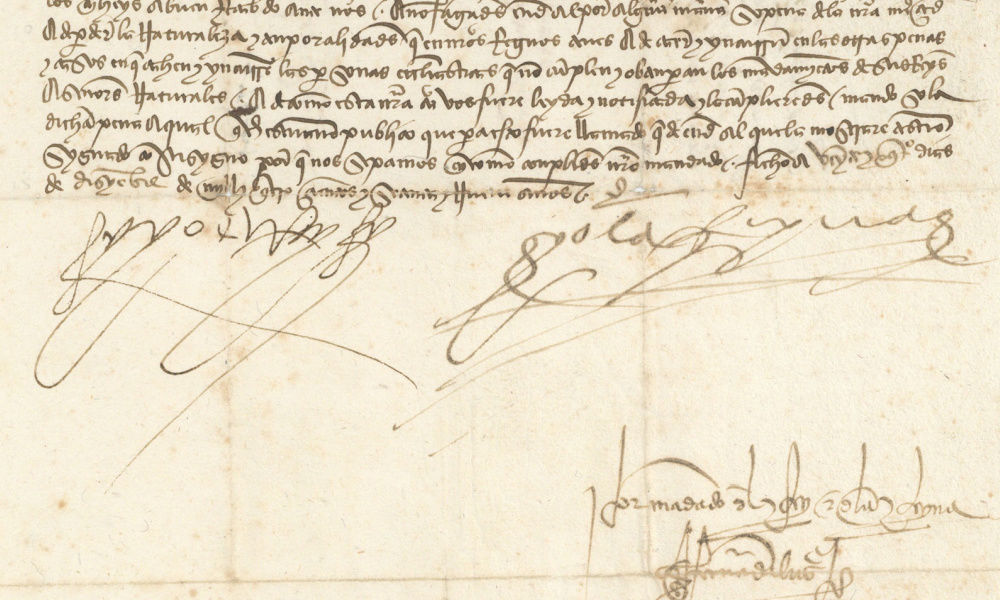On Christmas Eve in the First Year of Their Reign of Spain, Ferdinand and Isabella Await Word from the Pope
- SIGNED
- 24/12/1479
24/12/1479. In the meantime, they install an ally in the position of head of a famous religious institution The final controversies over their rights to rule Spain were finalized just months earlierWhen Isabella's half-brother Henry died in 1474, she asserted her claim to the throne of Castille, which was contested by thirteen-year-old Joanna, who was connected to Portuguese royalty. Joanna sought the aid of her husband (who was also her uncle), Afonso V of Portugal, to claim the throne. This dispute between rival claimants led to the War of 1475–79. Isabella called on the aid of Aragon, with her husband, the heir apparent, and his father, Juan II of Aragon providing it. Juan II died in 1479, and Ferdinand succeeded to the throne in January 1479. In September 1479, Portugal and the Catholic Monarchs of Aragon and Castile resolved major issues between them through the Treaty of Alcáçovas, including the issue of Isabella's rights to the crown of Castile. Through close cooperation, the royal couple were successful in securing political power in the Iberian peninsula.The Abbey of Parraces was a prominent 14th and 15th century religious institution near the town of Segovia. It gained some of its lands through the incorporation of seized property from the great synagogue which once existed there and suffered the fate – confiscation – of other Jewish institutions during the Inquisition.Pope Sixtus IV was head of the Catholic Church and ruler of the Papal States from 1471 until his death in 1484. His accomplishments include the construction of the Sistine Chapel and the creation of the Vatican Library. Sixtus founded the Spanish Inquisition through the bull Exigit sincerae devotionis affectus (1478), and he annulled the decrees of the Council of Constance.Document signed by both Ferdinand and Isabella, Christmas Eve, December 24, 1479, to the ""Prior, canons, and priests of the monastery of Párraces"".""We have sent a supplication to our most Holy Father to provide from this abbey a suitable, trustworthy . . . person. And while His Holiness provides for our supplication, we have ordered letters be drafted so that Francisco de Valdés, from our Royal Council, or whoever he authorizes, may take possession of the abbey and its rents. Therefore, we order you to keep and obey what I the Queen have ordered be sent to you in my letters regarding what has been stated above. And in case some person or persons should come to this monastery to make decrees without our license and special order, do not allow them to do it, but rather seize their bodies and, together with the documents they may bring, secure them and send them [to appear] before us. By any means, do not do anything else, under penalty of losing our good favor, and the lordships and rents that you enjoy in our kingdoms, and of falling into and incurring the penalties and cases in which the ecclesiastical people fall into and incur when they do not keep and obey the commands of their kings and natural lords. And once you have been notified of this, and this letter is read to you and you obey it, I order any public scribe who may be summoned for this, under the same penalty, to give the person who shows him [this letter], a written statement signed by him so that we may know that you are obeying our orders.”A particularly interesting document signed by both from the early years of their rule as the Monarchs of Spain. famous for sending Columbus to discover America.Our deep gratitude to esteemed scholar David Arbesu for his assistance in the translation of this remarkable manuscript.


